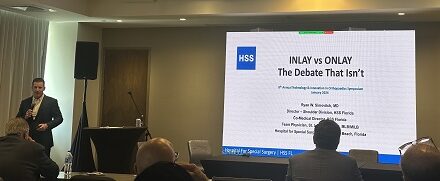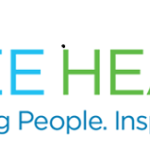Do you know how to recognize ‘burnout’?
This experience of persistent stress is most often associated with work demands. But, the physical and emotional labor of being a stay-at-home parent or caretaker can leave you feeling equally exhausted.
Living with burnout while continuing to show up day after day to fulfill your professional and personal responsibilities may feel like your only option. But, sustained burnout can slow your productivity, trigger absentmindedness, zap your job satisfaction, and stir up discontent at home.
Continuing to ignore the signs you need a break can lead to angry outbursts and apathy. Eventually, these feelings of situational depression and frustration can impact your relationships and performance in every aspect of your life.
Is taking a ‘mental health day’ the solution?
“I hate to say ‘no,’ because a day off can be very beneficial. But the problem is, it’s never enough,” says Daniel E. Jimenez, Ph.D., a psychologist with the University of Miami Health System.
“Too often, a mental health day isn’t a total disconnect from work and other responsibilities. It won’t help if you’re at the beach but still available to your supervisor and colleagues via email, text, or phone.”
Likewise, if your home life is constantly demanding your time, attention, and mental and physical energy, one day on the couch can’t provide enough distance from the source of your stress.
“Plus, if you feel that overwhelmed, one day isn’t going to cure you and leave you feeling recharged and ready to return to work. If you had the flu, for instance, one day in bed isn’t going to get you over that hump.”
Take a vacation to beat burnout.
“In the U.S., too many work vacation days go unused,” Dr. Jimenez says. “If you need a break, take two weeks of vacation or tap into your sick days.
“I’m not advocating using up all of your paid time off at once, but using the time given to you to truly disconnect. Turn on your email’s away message, and don’t look at work-related messages for the duration of the break. That will help you feel somewhat recharged with enough attention and energy to make it through the days and weeks ahead at work.
“A significant break can help carry you to the next holiday. Don’t wait for a mental health day. Utilize all of your earned time off because you’re being paid to not work and not worry about what happens at work.”
Worried you’ll return to an even bigger mountain of work?
It’s counterproductive to tough it out and work through burnout.
“It’s this mentality that has gotten us to this place. The saying, ‘I’ll sleep when I’m dead’ shouldn’t be in our lexicon. We have this work, work, work mentality, and days off are for lazy people. None of that is true and shouldn’t be part of the American perspective.”
Seeking work-life balance and engaging in self-care aren’t just trendy ideas for hippies and millennials.
“Every person needs rest, not just sleep, but breaks from work and home responsibilities. It’s not a weakness,” he says.
Work smarter, not harder.
“There’s good research that shows people are more productive at work after removing themselves from the source of the stress. Even a 20- to 30-minute nap can improve cognitive function and allow you to work through problems faster and better when you return to those tasks. It enables you to take a step back and return with a clearer head when your mind is less tired. It’s not counterproductive; it can be more productive.”
Researchers and high-performance professionals agree that R&R is directly tied to output.
“It’s no different from athletes, who have an off-season. They use this time to rest and recover, so they are in optimal shape when the season starts. When they return to the field or the court, they are in peak condition to do the task at hand,” says Dr. Jimenez. “The concept and the rewards are the same for all of us.”
Are you burned out, or is something else going on?
Burnout has a specific, identifiable cause. It may mimic the symptoms of anxiety and depression, but the feelings of apathy, sadness, and frustration are focused on those stressors.
Chronic anxiety and depression “are mental illnesses with no specific triggers in many cases,” says Dr. Jimenez. “With these conditions, the cause is usually genetics. It’s not necessarily situational. And there’s a specific treatment for those conditions, including psychotherapy and medication.”
Taking a day for mental health, a week of sick leave, or even an extended vacation isn’t going to resolve clinical depression or anxiety. Whereas the treatment for burnout is to remove yourself from the stressor.
“Burnout doesn’t necessarily come at us all at once. It can come in drips. So, pay attention to those drips that can eventually form a huge pool, leaving you feeling underwater. Don’t let it get to that point that you don’t care about work, and it feels futile to even try at your job. At that point, a day off isn’t going to really help,” he says. “But if you catch the signs and causes of burnout as it’s escalating and admit you’re having a hard time, you can take time off before it gets overwhelming and out of hand.”
Left unchecked, burnout can lead to serious anxiety and depression.
“Usually, once the stressor is removed, even temporarily, the symptoms typically resolve over time. So, take care of yourself.”
By: Dana Kantrowitz is a contributor to UMiami Health News.

























